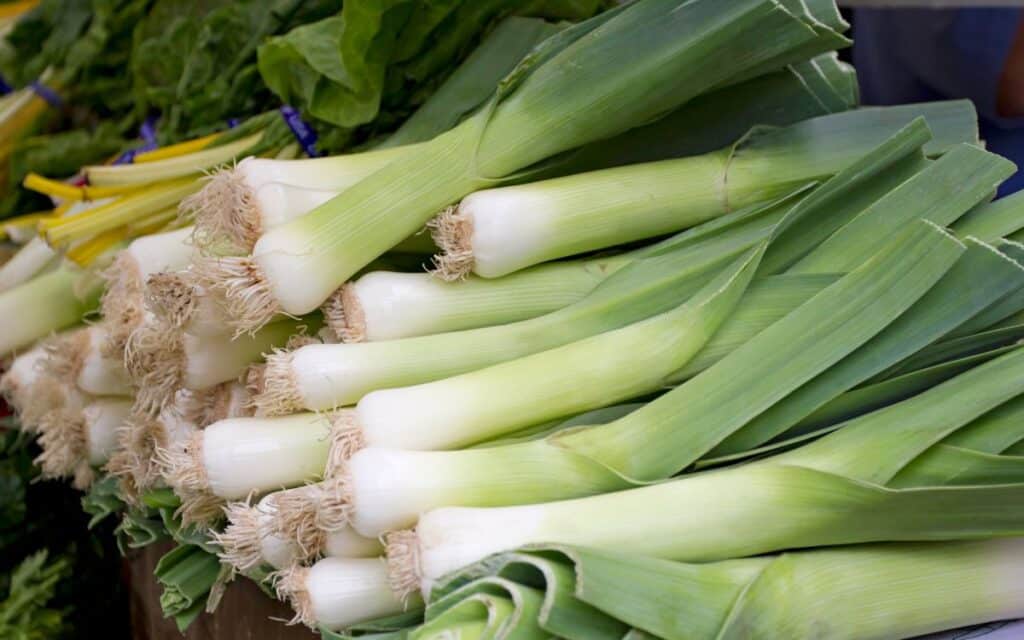Leeks have long been a symbol of Wales. For St David’s Day today, we’ll celebrate Wales’ national day by having a look at some superstitions and folklore surrounding this root vegetable!

Leek superstitions and folklore
Leek as a symbol of victory
The leek became a symbol of victory for the Welsh during the Battle of Heathfield in 633 AD when the Welsh warriors wore leeks in their hats to distinguish themselves from the enemy.
Leeks can ‘protect’ you
Carrying a dried leek was believed to protect you from evil spirits and bring good luck.
Plant a leek on St David’s Day for luck
Planting leeks on Saint David’s Day (1 March) was thought to bring good fortune and prosperity to the household.
They’ll also tell you who your future husband will be
On this day, girls also would place leeks under their pillows to dream of their future husbands.
Leeks have healing powers
Leeks were used in folk medicine to treat various ailments, including sore throats, fevers, and rheumatism.
They can also foretell the future in other ways
It was believed that the way the leek roots grew when planted on Saint David’s Day could foretell the future or the success of crops.
Animals can benefit from the protecting powers of leeks too
Farmers used to tie leeks around the necks of their livestock to protect them from diseases and bad luck.
You can do a “Leek Dance”
In some Welsh towns, a “Leek Dance” was performed during Saint David’s Day celebrations, involving dancing with leeks to bring good fortune to the community.
Chomping on a raw leek can be good for you
Consuming a raw leek on Saint David’s Day was thought to ward off illness and ensure good health throughout the year.
Decorate your home with a leek on St David’s Day
Besides wearing leeks, people would also decorate their homes with leeks during Saint David’s Day festivities to invite blessings and luck into their households.
Tell us your thoughts on Leeks folklore in the comments section in the section below!







